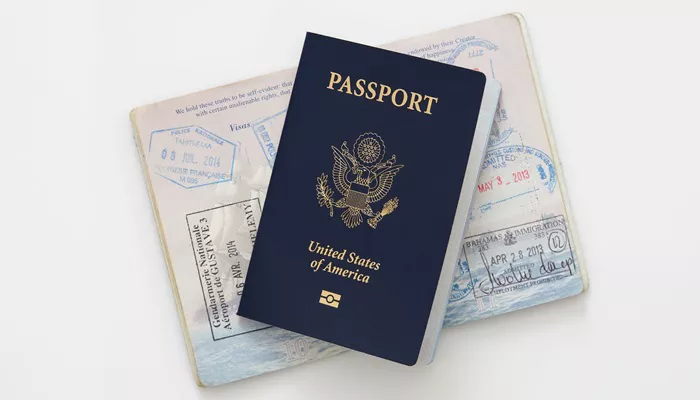Obtaining citizenship in a European country can be a complex process, but some nations offer more accessible pathways than others. This article explores the easiest European countries to acquire citizenship, focusing on the requirements, benefits, and processes involved.
Easiest European Countries to Get Citizenship
Portugal
Portugal is often regarded as the easiest country in Europe to obtain citizenship. The process is particularly favorable for those who choose the Golden Visa program, which allows investors to gain residency through various investment options, such as purchasing real estate or creating jobs.
Benefits of Portuguese Citizenship
No Physical Presence Requirement: Unlike many other countries, Portugal does not require applicants to be physically present for most of the year. This flexibility makes it ideal for individuals who may have business commitments elsewhere.
Naturalization Process: After five years of residency, individuals can apply for citizenship. Basic language skills (A2 level) in Portuguese are required, along with a clean criminal record and proof of residency.
Dual Nationality: Portugal allows dual citizenship, enabling individuals to retain their original nationality while enjoying the benefits of being a Portuguese citizen.
Ireland
Ireland is another attractive option for those seeking citizenship in Europe. The country has a straightforward process, especially for those with Irish ancestry.
Key Features of Irish Citizenship
Residency Requirement: For those without Irish ancestry, a five-year residency period is necessary before applying for citizenship. However, individuals with Irish parents or grandparents can claim citizenship by descent without needing to reside in the country.
Language and Integration: There are no formal language requirements for citizenship, but applicants must demonstrate good character and a commitment to living in Ireland.
Investment Opportunities: The Immigrant Investor Programme allows individuals to gain residency through investment, which can lead to citizenship after five years.
Sweden
Sweden is known for its favorable citizenship policies, making it one of the easiest countries to obtain citizenship in Europe.
Advantages of Swedish Citizenship
Short Residency Period: The standard residency requirement is five years, but this can be reduced to three years for those married to a Swedish citizen.
No Language Requirement: Currently, there are no language requirements for citizenship, although this may change in the future.
Integration Support: The Swedish government provides various integration programs to help newcomers adapt to Swedish society, which can facilitate the citizenship process.
Malta
Malta offers a unique pathway to citizenship through its Exceptional Investor Naturalization program, which is one of the fastest routes available.
Highlights of Maltese Citizenship
Investment Requirement: Applicants must make a significant financial contribution to the country, which can include real estate investments and government contributions.
Fast Processing Time: The citizenship process can be completed in as little as 12 to 14 months, making it one of the quickest options in Europe.
Dual Citizenship: Malta allows dual citizenship, enabling individuals to maintain their original nationality.
Belgium
Belgium provides a relatively straightforward path to citizenship, especially for long-term residents.
Belgian Citizenship Process
Residency Requirement: Individuals must reside in Belgium for five years before applying for citizenship. This period can include time spent as a student or worker.
Language Proficiency: Applicants must demonstrate knowledge of one of the country’s three official languages: Dutch, French, or German.
Integration: Applicants must show integration into Belgian society, which includes participation in community life and economic activity.
Spain
Spain is another popular choice for those seeking European citizenship, particularly through its Golden Visa program.
Benefits of Spanish Citizenship
Golden Visa Program: Investors can gain residency by purchasing property worth at least €500,000. After ten years of residency, they can apply for citizenship.
Language Requirement: A basic understanding of Spanish is necessary, along with proof of integration into Spanish society.
Dual Citizenship: Spain generally does not allow dual citizenship, but exceptions exist for citizens of Ibero-American countries.
France
France offers several pathways to citizenship, including through residency, marriage, and naturalization.
French Citizenship Options
Residency Requirement: Generally, individuals must reside in France for five years before applying for citizenship. This period can be reduced to four years for graduates of French universities.
Language Proficiency: Applicants must demonstrate proficiency in French, typically at a B1 level.
Cultural Integration: Knowledge of French culture and history is assessed during the application process.
see also: Can You Get Married While Your Asylum Is Pending?
Conclusion
Acquiring citizenship in a European country can be a rewarding endeavor, providing numerous benefits such as the right to live and work freely across the EU. Portugal, Ireland, Sweden, Malta, Belgium, Spain, and France stand out as some of the easiest countries to obtain citizenship, each offering unique pathways and requirements.
When considering which country to pursue citizenship in, it is essential to evaluate personal circumstances, including residency options, investment capabilities, and language proficiency. By understanding the processes and requirements, individuals can make informed decisions and successfully navigate the journey to European citizenship.


